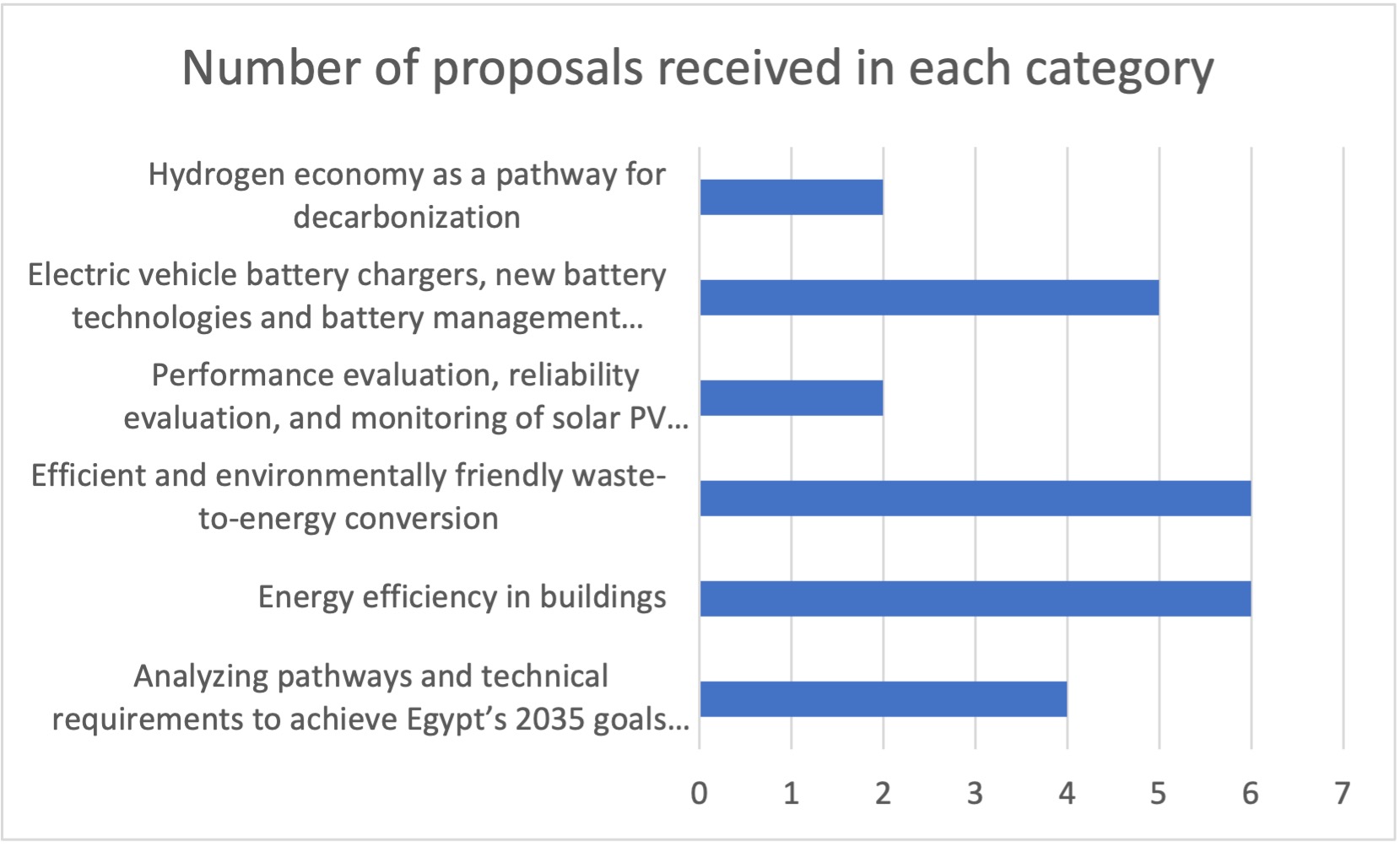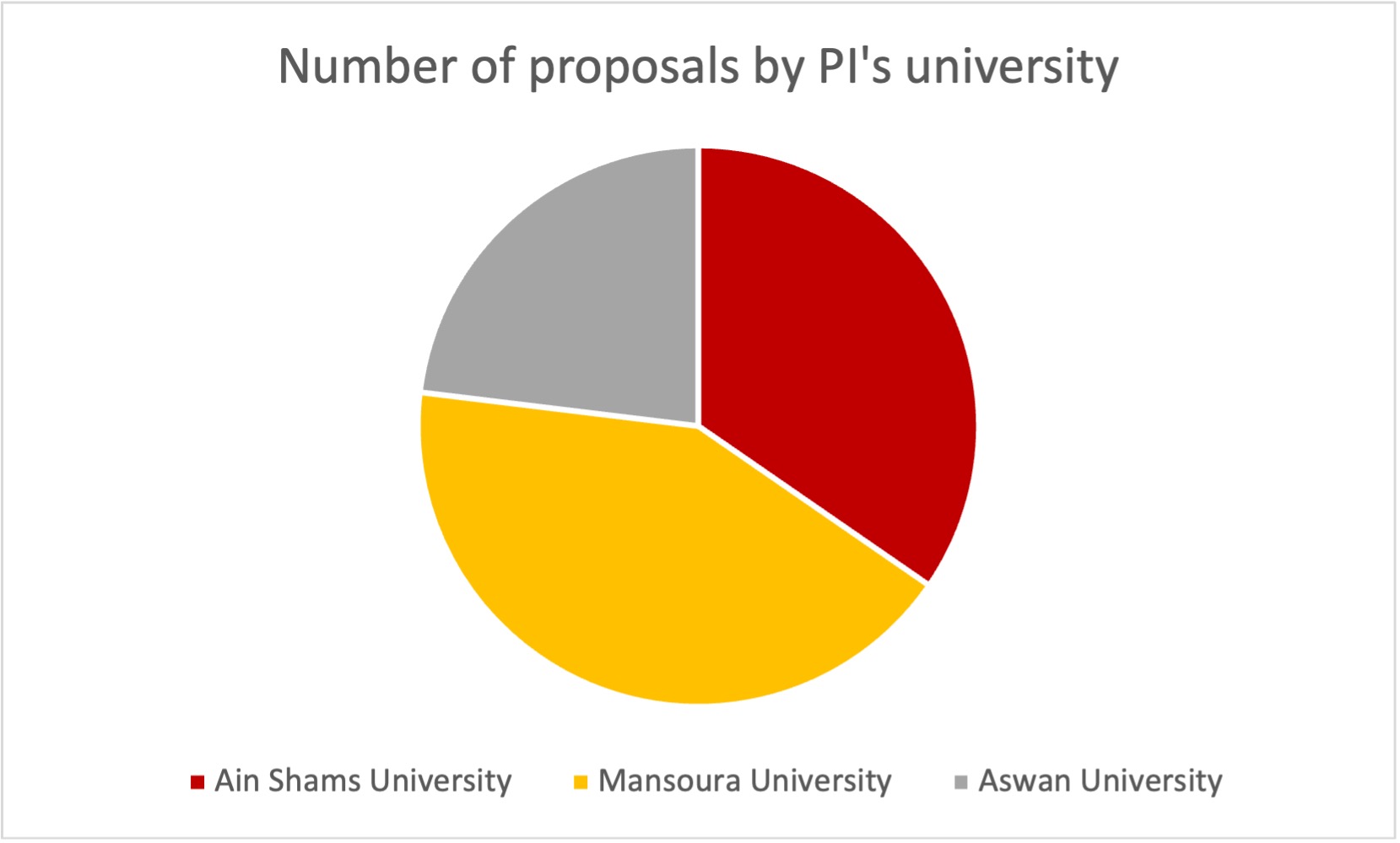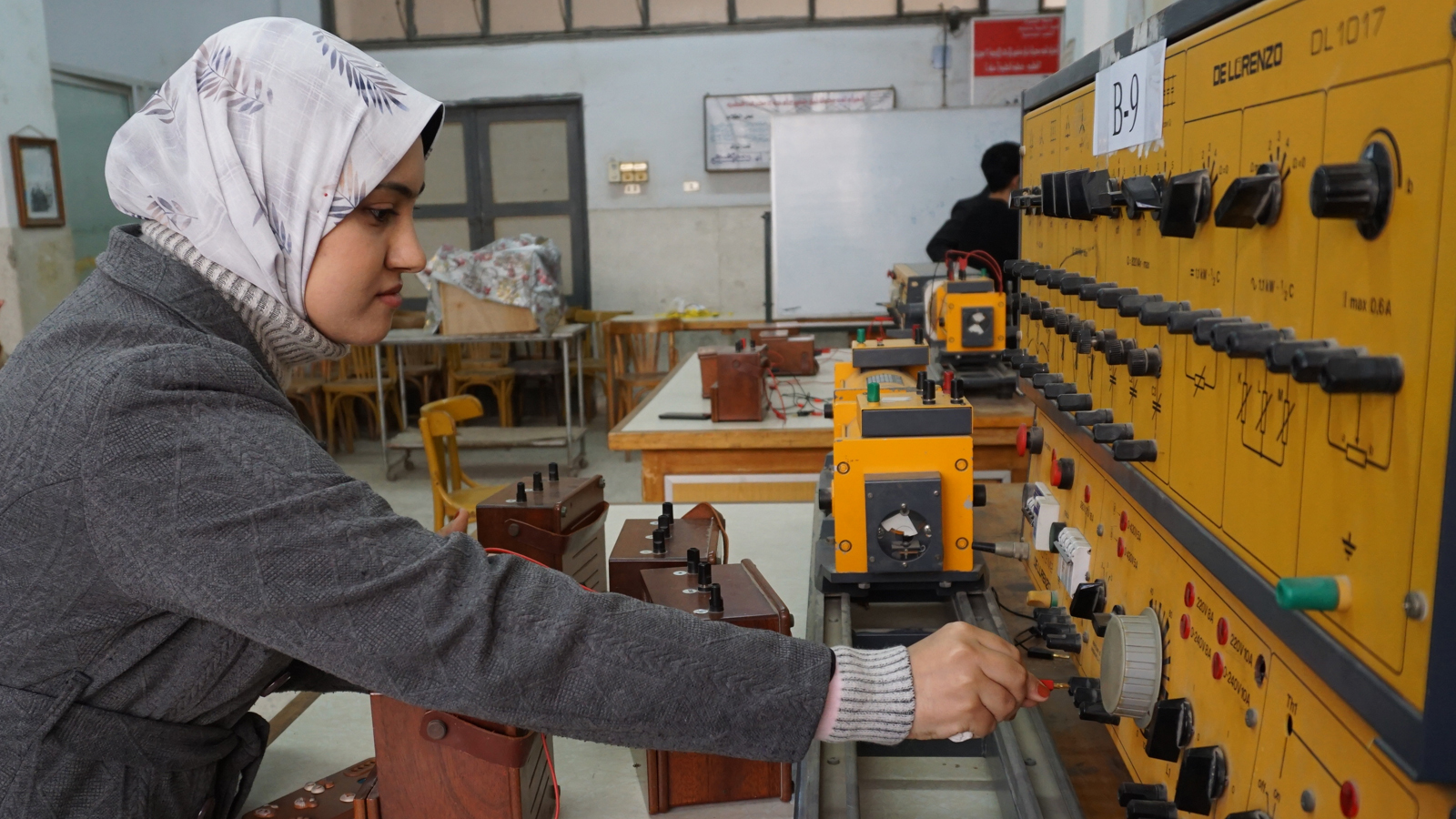Applied
Research
The USAID-funded Center of Excellence for Energy (COE/E) aims to strengthen the capacity of universities in Egypt to deliver relevant, innovative, and commercialized research to meet the needs of the public and private sectors and position Egypt as a regional leader in energy innovation and development. In 2022, the center formed the Research and Policy Committee to develop research strategy and ensure the center’s research is relevant to Egypt’s energy challenges and goals. Together with the Curriculum Development Committee, the Research and Policy Committee, has identified needs for research space and equipment at Egyptian partner universities (EPUs), developed research project selection criteria and process, reviewed research proposals, guided workshop content, and more.
Joint Binational Research Projects
In 2023, the COE/E launched a joint research grant program to fund four million dollars in energy research. The program called for proposals for multi-disciplinary, transformative solutions to Egypt’s most pressing challenges in the energy sector. Throughout 2023, the center met with stakeholders to define critical research areas, plan details of the grant proposal and funding process, and develop clear and transparent bylaws to award funds. These bi-national research projects will involve research conducted by more than 50 faculty and over 75 students from Egyptian partner universities (EPU) and Arizona State University (AUS-US). Grants will also support cutting-edge laboratory equipment at Egyptian partner universities as well as postgraduate and faculty exchanges and travel, and other research activities. To foster collaboration, the center hosted virtual networking meetings and published an energy faculty handbook to introduce EPU faculty to ASU-US faculty working in similar areas to identify potential project topics and begin work on proposals.
First Call for Research Proposals:
The first call for research proposals was announced on November 9 during COP27, in which the COE/E participated.
The center received 32 research project proposals: thirteen large project proposals, eleven medium project proposals, and eight small project proposals, in the following areas:
- 3 in energy-environment interdependency, sustainable energy
- 5 in electric vehicles
- 4 in energy efficiency, energy automation
- 10 in renewable energy
- 6 in energy systems
Nine projects were selected for funding: 3 large, 4 medium, and 2 small projects. COE/E is currently supporting the projects in preparation as they await their security clearance before funds can be awarded and work can commence.
Advancing Research Resources
The COE/E hosts workshops and trainings to expand technical knowledge and foster skills pertinent to conducting research including:


Second Call for Research Project Proposals:
In the second call for proposals, which closed in January 2024, the COE/E received 26 proposals including:
- 13 large proposals and 13 medium proposals
- Six proposals related to solar energy and systems, five proposals related to biowaste, five related to batteries or electric vehicles, two related to energy policy and economy, as well as proposals in other areas.
- Eleven proposals were submitted by principal investigators at MU, nine from ASU-EG University, and six from AU.
The technical review of the proposals is complete and final selection is underway.
Shared Research Laboratory Facilities
In FY2023, the COE/E’s technical advisor worked with stakeholders to significantly revise the drafted plans for laboratory equipment to enhance curriculum activities at EPUs and ensure these were aligned with Egypt’s energy industry needs. Working with university leadership, the technical advisory boards, and working groups at each EPU, teaching and research laboratory space has been identified at each university and a comprehensive list of equipment was developed, which includes:
- Current probe (Measures AC, DC Current to 100A, BNC Interface, BW: 300KHz)
- Differential probe (10:1, 100:1, 25MHz)
- HIL 6 series
- HIL Breakout board Three-phase Inverter with Isolated Voltage and Current Sensors Advanced Control Education Kit MicroLab Box consisting of DS1202 and DS1302 I/O board, top panel, carrier bag, CDP Control Development
- Fluid Properties & Hydrostatics Bench
- Fluid Properties Apparatus
- Energy Losses in Bends and Fittings
- Automotive Diesel Engine
- Francis Turbine
- Pelton-Turbine
- Impulse Turbine
- Series & Parallel Pumps
Each piece of equipment is justified with a detailed description of the experiment or course it will support, a detailed goal of the experiment and the procedure and equipment necessary to execute the experiment. Requests for Quote (RFQs) were issued and purchase orders issued. The first equipment arrived at Aswan University in January 2024 with a goal of all equipment arriving by the end of the year.



